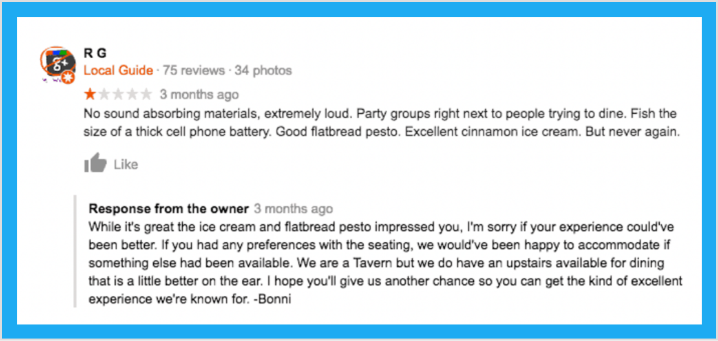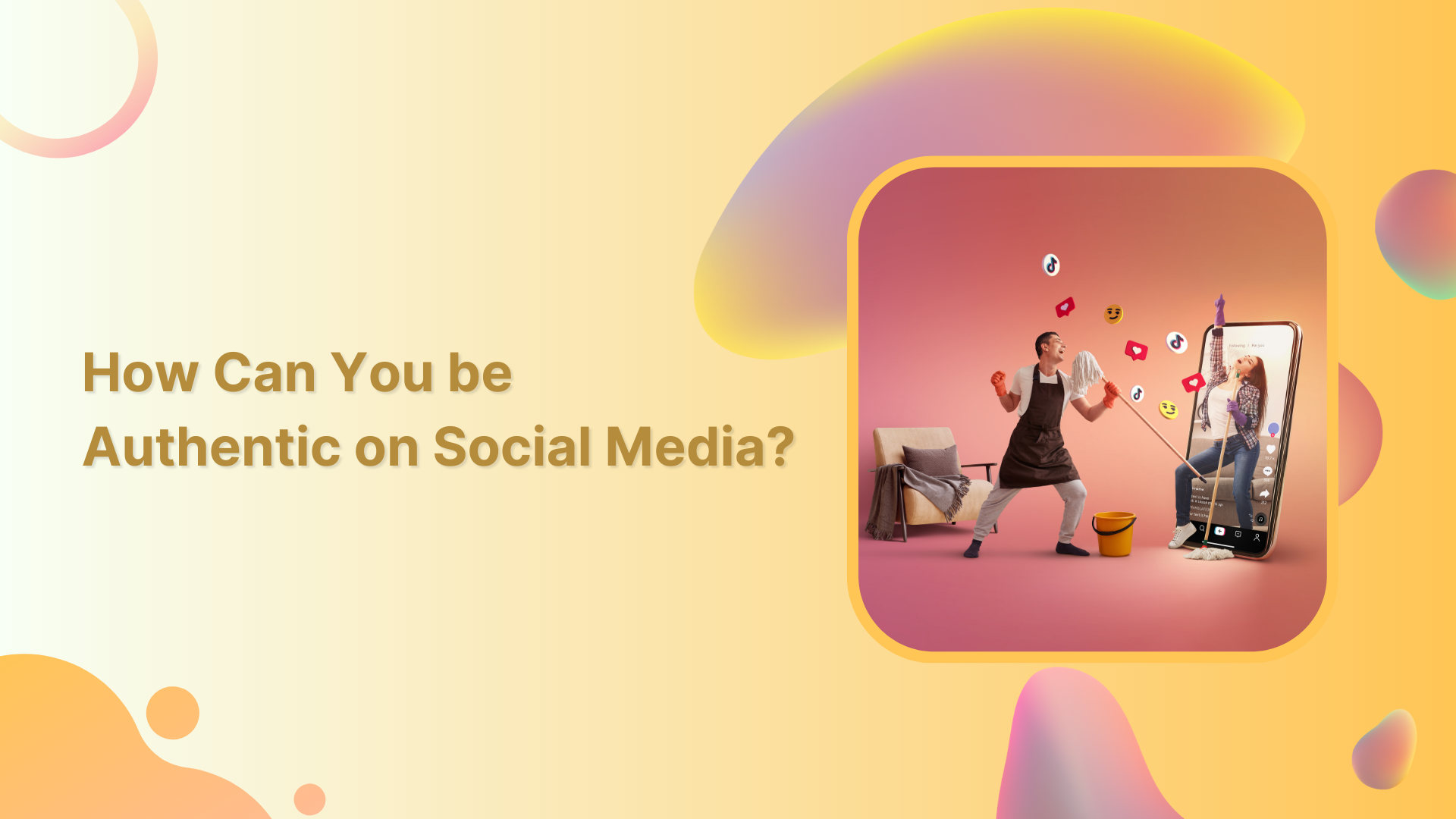Authenticity on social media is crucial for building trust and connections with your audience. However, with the constant pressure to present the perfect image, it can be challenging to be true to yourself. In this blog, we will explore what it means to be authentic on social media, why it’s important, and provide tips on achieving authenticity in your online presence.
Also Read: Top 15 Social Media Trends for Marketers in 2023
We will cover everything from understanding the difference between authenticity and perfection to handling negative comments and criticism. Being authentic on social media is key to building a genuine and loyal following.
What is authenticity in terms of social media?
Authenticity on social media refers to being true to oneself and one’s values. It means not putting on a facade, pretending to be someone you’re not, and being real and relatable.
It helps build trust and connections with others, as people can see you are genuine and true to yourself. It can also help differentiate a person or brand from others in a crowded and noisy social media landscape. Overall, authenticity is a key factor in creating an effective and successful social media presence.
How to create social media authenticity
The following are a few key ways to achieve authenticity on social media:
Define your values and mission:
Before you can be authentic on social media, you need to know what you stand for and what you want to communicate to your audience. Define your values and mission and ensure your messaging and content align with them.
The Body Shop conveys its values through its social channel, Instagram, keeping in view the beauty industry’s animal ingredients.

Be transparent:
Being transparent on social media can help build authenticity by showing your audience that you are honest and open. This can be done by sharing real-life experiences, being open to feedback and criticism, and being true to your brand’s values. Be honest and transparent in all your posts and interactions. Don’t try to hide or sugarcoat the truth.
Related Read: The Secret of Social Media Management: Making Your Audience Better
Share personal content:
Share personal content that aligns with your values and beliefs. Showing a little bit of your personal life can help your followers connect with you on a deeper level. This is another reason Instagram influencers are so popular and loved by their audience; they just know how to keep people involved!
Have a look at this social media influencer sharing her personal skincare routine.
Show vulnerability:
Showing vulnerability on social media can help create authenticity by allowing others to see a person’s or brand’s human side. This can include sharing personal struggles, failures, insecurities, and positive aspects of life, such as family, hobbies, and passions.
Being vulnerable and open on social media can also help to build trust and connect with others. However, it is important to be mindful of how much vulnerability to share and to ensure that it is appropriate for the platform and audience.
This can help others relate to you better and can increase authenticity.
Don’t overshare:
While being authentic is important, remember that you don’t have to share everything about yourself. It’s okay to keep some things private.
Oversharing can make people uncomfortable or turn them off and put personal information at risk. It is important to find the right balance and to be mindful of how much information to share on social media.
It’s also important to consider the context and audience when sharing personal information. Some things may be appropriate to share with close friends and family, but not with a wider audience or on a professional page. Additionally, respecting others’ boundaries and not sharing information about them without their consent is important.
In summary, being open and transparent on social media can help create authenticity. Still, it’s important to be mindful of how much to share and to always consider the context and audience.
Handle negative comments and criticism professionally:
When you receive negative comments or criticism, respond professionally and respectfully. Don’t take it personally, and learn from constructive criticism.
Handling negative comments and criticism professionally on social media is important for maintaining a person’s or brand’s reputation.

Also Read: How to Positively Handle Negative Comments on Social Media?
Here are a few tips for professionally handling negative comments and criticism:
- Remain calm and composed: It’s important to not let negative comments or criticism provoke an emotional response. Take a moment to collect your thoughts before responding.
- Acknowledge the comment or criticism: Show that you have seen the comment and are taking it seriously. This can also help to de-escalate the situation.
- Apologize if necessary: If the negative comment or criticism is valid, consider apologizing and acknowledging the mistake.
- Address the issue and provide a solution: If the negative comment or criticism pertains to a specific problem, provide a solution and take steps to address the issue.
- Be polite and professional in your response: Use a professional tone and avoid responding in a way that could be perceived as hostile or defensive.
- Remember that criticism can be valuable: Constructive criticism can be used to improve and grow.
It is important to remember that your social media represents you and your brand, and it is the first thing people will see when they look you up. So, it is essential to maintain professionalism at all times.
Engage with your audience:
Engaging with your audience is key to building authenticity on social media. This can include responding to comments, direct messages, and reviews in a timely and authentic manner and actively seeking out feedback and input from your audience.
Related Read: Social Media Engagement: 10 Easy Ways to Improve it
Additionally, creating opportunities for your audience to participate in your content, such as through polls, contests, and user-generated content, can also help to increase engagement and build authenticity. This can help to build better relationships with your followers.

Show behind-the-scenes content:
Sharing behind-the-scenes content on social media can be an effective way to build authenticity with your audience. This type of content provides a glimpse into the day-to-day workings of your business or organization and can help to humanize your brand. It can also give your audience a sense of exclusivity and make them feel more connected to your brand. Some examples of behind-the-scenes content include photos or videos of your team at work, live streams of events or product launches, and sneak peeks of upcoming products or services. It can also be a good way to showcase the people behind the brand and give the audience a sense of transparency. Give your followers a glimpse into the inner workings of your business or personal life. Here is an example of a local shoe brand doing just that!
View this post on Instagram
Be responsive to feedback:
Being responsive to feedback is important to building authenticity on social media. This means actively seeking out and listening to the opinions and thoughts of your audience and then taking appropriate action based on that feedback. Responding to comments, messages, and reviews in a timely and authentic manner is key, as well as showing your audience that you are taking their feedback into account and making changes accordingly.
Manage your brand’s social presence by monitoring and managing incoming messages and comments across your social networks.
Master Social Customer Care and Support
This can help build trust and credibility with your audience, as you value their input and are dedicated to improving your business or organization based on their feedback. Listen to what your customers or followers say and make changes accordingly. As a result, your audience will feel more trusted and credible.
Read-Up: Social Media Customer Service: Proven Tips to Solve Customer Complaints
Stay true to yourself:
Staying true to yourself is important to building authenticity on social media. This means being genuine and authentic in your interactions with your audience and being true to the values and mission of your brand.
Related Read: 10 Social Media Branding Tips for Brands in 2023
It can be easy to get caught up in social media’s fast-paced and competitive nature, but it’s essential to remember to stay true to yourself and your brand. This can include being honest about who you are and what you stand for and not being afraid to share your unique perspective and voice.
Additionally, staying consistent with your brand’s message, tone, and values will help build trust and credibility with your audience and make them more likely to relate to and connect with your brand. Here’s how Adidas is staying true to its anti-racism perspective.

How authenticity can enhance brand image
Authenticity can enhance the brand image by differentiating a brand from others in a crowded social media landscape. When a brand is genuine and true to its identity, it establishes a unique and memorable brand image that resonates with its audience. Being authentic helps build trust and credibility with customers and potential customers, leading to increased loyalty and repeat business.
Related Read: How To Build Brand Voice With Social Media Automation
Additionally, when a brand is authentic, it can attract the right audience that aligns with its values and message, leading to a more engaged and supportive community.
Authenticity helps to create a sense of pride and belonging among employees, leading to better performance and productivity. Authenticity is key to creating a successful and effective brand image on social media.
7 benefits of being authentic on social media
Being authentic on social media can have several benefits, including:
1. Increased engagement as a result of authenticity
Increased engagement is one of the benefits of being authentic on social media. People are more likely to engage with your content and respond to your messages when you are genuine and transparent in your online interactions. They are also more likely to share your posts, recommend you to others, and generally be more active in your online community. Since we’re all about Instagram, you can put in extra effort to grow Instagram engagement.
People who feel you are being genuine are more likely to engage with and trust you. This can increase your social media posts’ likes, comments, shares, and overall engagement.
Also Read: How To Maintain Engagement Using A Social Media Posting Tool
2. Better relationships with followers
People are more likely to trust and relate to you when you are genuine and transparent in your online interactions. This can lead to stronger, more meaningful connections with your followers.
Being authentic allows you to connect with your followers on a deeper level, which can lead to increased loyalty, engagement, and support. People are likelier to feel a sense of community and connection when they can trust and relate to you.
Additionally, authenticity can make it easier for you to communicate and connect with your followers, as they will be more likely to understand and relate to your messages. This can lead to more open and meaningful conversations, which can, in turn, help you build stronger relationships with your followers.
Being authentic can foster deeper and more meaningful relationships with your followers, leading to a more engaged and supportive community.

3. Authenticity draws a right and loyal audience
When you have increased engagement and better relationships with your followers, it leads to a more loyal audience. They will keep coming back to your content and be more likely to recommend you to others. Being authentic also attracts the right audience that aligns with your values and message. This can lead to a more engaged and supportive community, as they will relate to your content more.
4. Increased trust and credibility
Trust is vital to any relationship, and social media is no exception. When people trust you, they are likelier to engage with you and your content, increasing trust and credibility for you or your brand.

5. Authenticity leads to increased sales
When a brand is authentic, it builds trust and loyalty among its customers. A loyal customer is likelier to recommend your brand to others and make repeated purchases, increasing sales.

6. Boost social media reach by being authentic
Being authentic can build trust and connections with others, leading to increased social media reach. As your followers and audience grow, you can reach new people and expand your online presence.
7. Authenticity helps in influencer marketing
Authentic influencer partnerships can lead to increased trust and credibility for your brand. By working with influencers who align with your values and mission, you can reach new audiences and establish a strong and authentic brand image.
View this post on Instagram
Final thoughts
In conclusion, being authentic on social media is crucial for building trust and connections and differentiating yourself from others in a crowded digital landscape. Authenticity involves being true to yourself and your values, being honest and transparent, and handling negative comments and criticism professionally. For brands and businesses, maintaining authenticity is key to building trust and credibility with their audience. By following these tips and strategies, you can be authentic on social media and build a genuine and loyal following. Authenticity takes time and effort, but the rewards are worth it.
